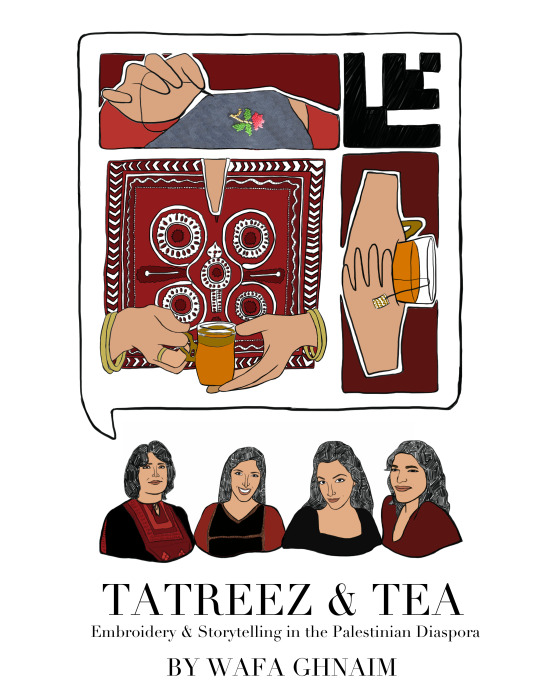Wafa: Missiles, Wheat, and Gardens
By: Nadia Abuelezam
Wafa Ghnaim is one of the sweetest people I have ever met. She recently authored a book called Tatreez and Tea. It’s an amazing collection of Palestinian embroidery patterns and tea recipes that she’s been collecting since she was a young child when she started to learn the craft from her mother. The book helps readers better understand Wafa’s experience as a child born to immigrants in the United States, and the struggle for identity and home that many Palestinians in the diaspora face.

In today’s world “immigrant” has become a negative term and mass migration from countries that are worn-torn to countries that provide a bit more stability has become common place. In her emotionally raw episode, Wafa discusses the difficulties of being a child of immigrants in the 1980’s in Boston. Her experience with bullying and physical violence have had a toll on her life ever since. Her story gives us context and understanding for the immigrant story in the United States today and helps us better understand the struggle that many endure in countries around the world.
As Palestinians in the diaspora, we are always searching for home and identity. This has been mentioned again and again by stories featured on Palestinians Podcast (#1: Annalise, #2: Rana, #7: Nadia). Something that Wafa does profoundly in trying to better understand herself and her identity, is articulate the importance Palestinian diaspora to the Palestinian cause. Wafa uses the imagery of her favorite thobe (or traditionally embroidered Palestinian dress) design, the Gardens design, to describe the diaspora’s relationship to Palestine. While Palestine remains the root and the base of identity for so many people living in the diaspora, it is hard for many to imagine themselves as part of the traditional Palestinian family tree. Instead, Wafa discusses the potential for those in the diaspora to be a part of the Palestinian garden. The tree stands strong in Palestine, but the offshoots bloom on their own in the diaspora, developing into flowers that continue the traditions of the homeland. It is that homeland that Wafa and her husband hope to bring to their child.

Children of Palestinians inherit the struggle of identity and displacement, whether they recognize it or not. We’ve seen in many episodes of Palestinians Podcast that those of us not born in Palestine yearn for meaning and connection. Wafa has found that connection through her practice of embroidery. You can learn more about Wafa’s book on her website and purchase the digital version of the book on Amazon.
Link to Podcast Interview: https://tatreezandtea.com/2017/01/05/palestinians-podcast-article-interview-with-wafa-ghnaim/


